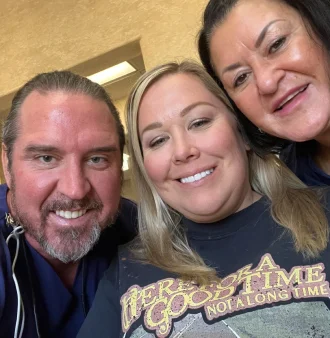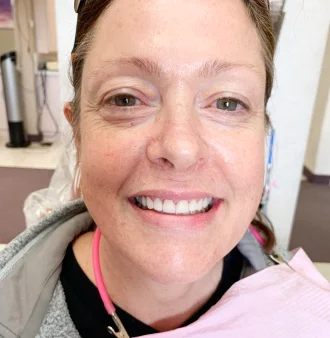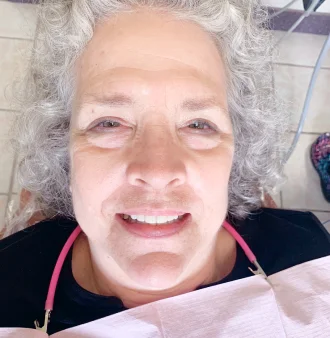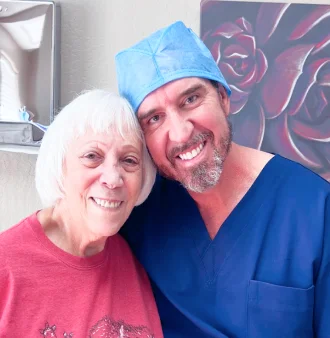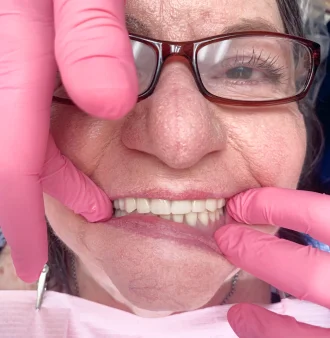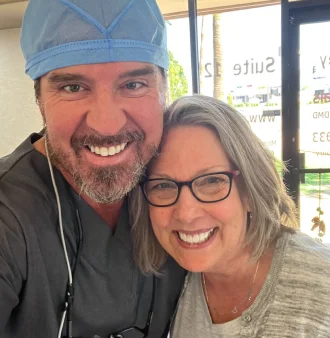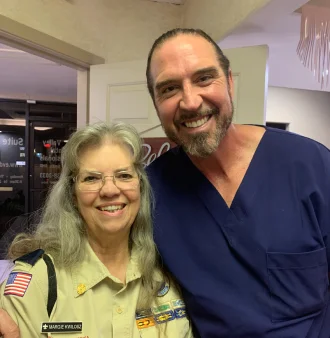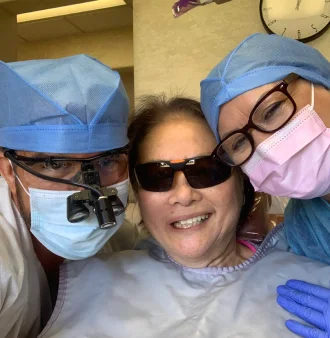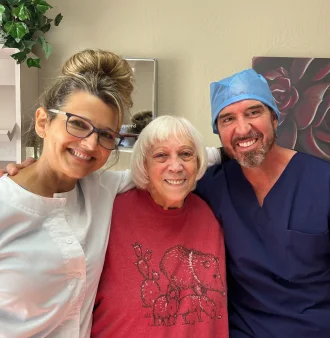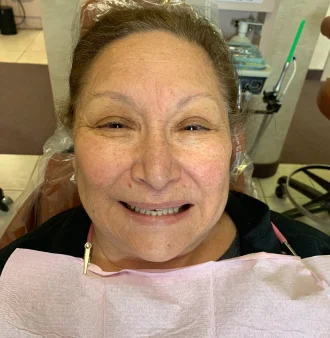Tooth Cavity Fillings
Dental cavities occur in more than 90% of adults and 20% of children in the United States. Cavities are caused by tooth decay, which affects more than 60% of adolescents. The majority of visits to the dentist involve caring for teeth that are damaged due to decay. Cavities are usually treated with fillings. There are various types of fillings available that you should discuss with our dentist if you have a cavity.
Benefits
- Prevents further decay: Fillings prevent cavities from growing larger and causing more damage to your tooth.
- Restores tooth structure: Fillings restore the shape and function of your tooth, allowing you to chew comfortably.
- Reduces pain: Fillings can relieve tooth pain caused by cavities.
- Improves appearance: Fillings can improve the appearance of your teeth, especially if the cavity is in a visible location.
- Prevents tooth loss: By stopping decay and restoring the tooth structure, fillings can help prevent tooth loss.
- Maintains oral health: Healthy teeth are essential for overall oral health. Fillings can help you maintain good oral health by preventing cavities from spreading to other teeth.
What people say
about Us
I've been a patient for fifteen years and I couldn't imagine going elsewhere. Everyone is professional, kind and the best of the best! I've had most every oral procedure and each has been flawless.
They are always friendly, attentive, have quick service and respond quickly to questions.
EVDP is amazing, the patient care is top notch and they do beautiful work! I felt so taken care of as patient and strongly recommend their services!
The visit was great I hope I can come up with the money some he can fix my mouth for me. At 53 have never had a kinder Dr. in my mouth. Wish I had insurance so he could do my work today.
Everyone was helpful and kind. I appreciate the introductions of who people were. My stay was pleasant and I'm hopeful my tooth problem is resolved.
Understanding Tooth Decay
Our mouths are home to bacteria. When we consume food and beverage, bacteria break down most of the remaining particles. This process produces acid that can erode the enamel that protects our teeth. Acid may lead to holes (cavities) that begin small and increase in size over time.
Plaque Buildup
The majority of tooth decay is preventable with good oral hygiene. Plaque forms in our mouths through the combination of saliva, bacteria, acid, and food and beverage particles. Plaque builds up and adheres to the teeth. The teeth may also be exposed to stomach acid at times.
Natural acids exist in our stomach for digestion. Those with gastroesophageal reflux have excessive acid that enters their mouths and harms their teeth. Saliva helps dilute these acids. Those who have an excessively dry mouth are more likely to experience acid-based erosion as well.
Types of Fillings
Several filling materials are used for cavities. Each material has advantages and disadvantages that should be considered. The severity of tooth decay, long-term durability, cost and appearance are all factors to take into consideration.
Amalgam Fillings
Amalgam fillings are a blend of metals that are known for their durability, as they can last for 10 to 15 years. They are commonly composed of gold, silver, and other metals. Other materials that may be used include tin, zinc, copper, and more. Because of their durability, they are commonly used in the molars or teeth with significant wear.
Gold fillings are more costly than silver. One disadvantage to these alloy blends is that they do not match well with the appearance of your existing teeth. They also may require two office visits for completion.
Sometimes, healthy portions of the tooth must be removed to properly accommodate amalgam fillings. Less than 1% of patients are allergic to these types of fillings. Always inform your dentist about any known allergies before undergoing any filling procedure.
Composite Fillings
Composite fillings are made of synthetic resins that are bonded to the teeth and are fairly durable. They are commonly used to fill cavities that may be visible because they closely match the existing teeth. They bond very well to teeth and effectively support the overall structure of the tooth.
Composite filling may be more costly than silver amalgam fillings. They wear out in less time than amalgams—typically in five years.
Ceramic Fillings
Fillings may be composed of porcelain or other ceramic material. These may last for more than 15 years. They are very resistant to staining and match the appearance of existing teeth well. They can be very costly when they are not covered by dental insurance.
Indirect Fillings
Unlike direct filings, indirect fillings are those that are created in a laboratory and require two office visits to be completed. They are commonly used when the structure of the tooth has been heavily damaged. During the initial office visit, any part of the tooth that is decaying is removed along with any existing fillings. This allows the dentist to properly create a mold that will be used to create the filling in a laboratory.
A temporary filling is typically used to protect the tooth until the filling is placed during the second office visit. Temporary fillings are not intended to last more than a few weeks.
There are two types of indirect dental fillings:
- Inlays: These are fillings that are placed on the chewing surface of the tooth.
- Outlays: These are more extensive and used on multiple surfaces. They are sometimes referred to as partial crowns.
Both types are very durable, lasting for up to 30 years. They perform very well in the molars and premolars that are used for chewing. Inlays and outlays fit very securely and prevent bacteria from eroding the teeth.
Caring for Your Fillings
A new filling may initially cause sensitivity to heat or cold for a short time. If you experience long-term discomfort, visit our dentist to determine if an adjustment is necessary. It is important to practice good oral hygiene habits to maintain your teeth and protect your fillings. This may include avoiding hard foods and brushing and flossing daily.
Costs and Insurance Coverage
Depending on your insurance, dental insurance usually covers the cost of composite fillings. Based on your insurance policy limitations, you may need to pay for a portion of the cost. Check with your insurance provider before having any dental work completed.
Provider of Family Dental Services in Mesa
For more than 30 years, East Valley Dental Professionals has been providing high-quality dental care services. We use the latest techniques and technology to deliver superior results in a welcoming and comfortable environment. Contact our office today for an appointment at (480) 838-3033.
Your Smile's Happy Place! Come visit us and see why
Fun atmosphere, friendly staff, and zero dentist nightmares

